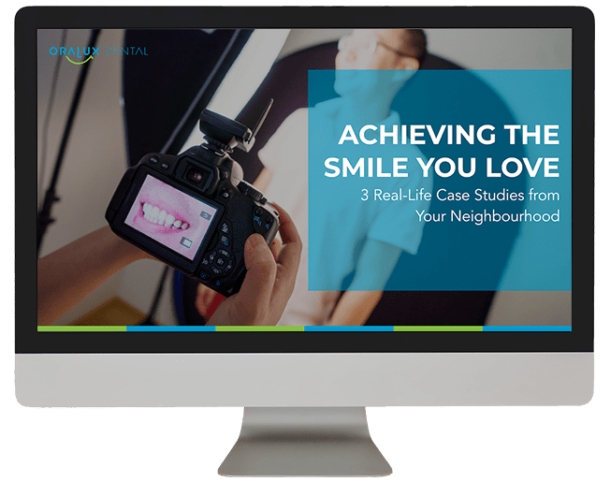How to Take Care of Yourself in a Noisy World

Facebook status, Twitter feed, Instagram, Snapchat, emails, selfies…welcome to life in the digital age. Social media updates on friends and acquaintances are constant, detailing enviable holidays, incredible food, pedicured feet in exotic locations and enthusiastic use of adjectives. This constant barrage of information has nurtured a phenomenon known as FOMO (fear of missing out), an acronym emblematic of our times.
In the not-too-distant past, train commuters stared out of windows with wandering eyes, read books, or chatted with friends. The modern commute now reveals a singular phenomenon – people head down, scrolling, swiping and zooming luminescent screens. Smartphones have made the internet accessible to anyone, anywhere, introducing a thoroughly contemporary problem – when do we ‘switch off’?
Digital technology brings an endless flow of information into our lives, which can be challenging and stressful. Meanwhile, social media pressures us to disclose personal information and experiences. Recent scientific research has found a link between digital technology and psychological . The addictive nature of life online can make cutting back difficult, but it’s worth taking some steps to reduce the amount of time you spend staring at that screen. However, if a total digital detox seems too hard to achieve, consider introducing small changes to help yourself relax and re-energise.
Bedtime is sleep time
When crawling into bed it can be difficult to resist a little online shopping, or checking Facebook one last time. But did you know the blue light emitted from our devices interrupts our natural circadian or sleep/wake cycle? This light disrupts the production of melatonin, the hormone that signals that it is time to sleep. Studies have shown that adults who use digital devices in the bedroom have poorer quality sleep and sleep fewer hours than those who switch off. If a technology-free bedroom is too daunting, try disconnecting 30 minutes before you sleep for a more restful night.
Using devices at bedtime has an impact on sleep in children and young adults. Academic demands, social and extra-curricular activities and entertainment all conspire to keep children electronically engaged at night. The Sleep Foundation that children who use devices in the bedroom experience disrupted sleep, often feel sleepy at school, go to bed later and have trouble falling asleep.
Establishing rules around the use of devices in the bedroom allow children to get the sleep they require for optimal growth, creativity, learning and weight control. BHC’s Teenagers and sleep page have some useful tips for preventing sleep deprivation.
Meditate on the small moments
For many of us, finding time to relax may seem an impossible task. Scheduling downtime may seem counter-intuitive, but even ten minutes a day can put a significant dent in our stress levels.

Peace can be found in small moments – practising mindfulness daily yoga, Qi Gong, or taking time out in a local park. Listening to or playing music can be a calming experience as it focuses on the mind, removing distractions. Whatever your method, take some time each day to engage in activities that bring you inner calm.
Kids need calm too
Tech-savvy kids also need a time out from the digital world and a chance to recharge. Mindfulness and yoga are part of the lives of many children, and age-specific meditation programs such as Smiling are a popular component of the curriculum of many primary schools.
The Resilience specifically targets mental health and emotional resiliency in primary and secondary school-aged children. Programs focusing on practical strategies are delivered to schools, sports clubs and businesses.

At home, set some time aside for offline, non-screen activities such as reading, listening to music, building something, drawing, gardening, walking or running, playing an instrument, playing a sport, riding a bike or spending time with a friend. Talk to your children about what they enjoy and help them find an activity that is right for them.
Friendship – a wildly underrated medication
Facebook users commonly have hundreds of friends, but do these online friendships offer the same health benefits as ‘real’ friendships? Studies have suggested that some forms of online connections bring health but others do not. Face-to-face friendships in the real world are known to be associated with lower .

Friendship is not just about fun and camaraderie; strong friendships lower our levels of chronic stress and may even extend our lives. Adults with strong social support have a lower risk of significant health problems, including infection and depression. Recent studies have found a link between poorer health and social . Biomarkers, such as blood pressure and body mass index, were found to be worse in those with weaker social ties. As we age, friendships also play a role in keeping our minds sharp. A 2012 study found that feelings of loneliness increased dementia risk in older .
So get out there, keep your connections real and where the possible aim for face to face catch ups in place of the digital variety. Chances are you feel better, and might even live longer for it!
Beware the busy life
‘I’m booooooored!’ may be the most reviled refrain a parent can hear, but allowing boredom into a child’s life is good parenting. Research has shown that boredom provides an inner quiet that helps children develop self-awareness. It is through finding a solution to boredom that children can learn important life skills such as creativity, drive and passion.
Canadian psychologist Dr Vanessa says, “Children need to sit in their own boredom for the world to become quiet enough that they can hear themselves.”

Allowing boredom into our lives helps adults to still their minds, too. Our unoccupied minds get creative to provide missing stimulation through imaginative fantasies and exploration. Quieting our minds also allows for self-reflection, time to review our lives and reassess. Superior problem-solving skills and boredom have been . When our subconscious is free to wander it can lead to enlightened moments and be a catalyst for change in our personal or professional lives. The British Psychological has more to say about the positive role boredom can play in our lives.
Pets reduce stress
It is hard to be stressed when a purring cat crawls into your lap, or the wet nose of a dog nudges your hand. Studies have demonstrated a lower level of cortisol (the stress hormone associated with anxiety and depression) in pet and an increase in dopamine (a chemical associated with positive feelings) after just five minutes with a pet.
Pet ownership has powerful mental health benefits through their unconditional love and companionship. But it’s not just our furry friends who are good for our health – even fish help with . Studies have shown that watching fish in an aquarium can be a powerful relaxant.

The physical perks of pet ownership are well established. Dog owners are more active than their pet-free counterparts, taking time out to walk and exercise with their pets; and patting a dog has been shown to reduce blood pressure. So in moments of stress, or after a long day, spend some time with your cat or take a walk with your dog. You could even walk your neighbour’s dog if they don’t get out so often. Or maybe set up an aquarium for your viewing pleasure.
Be kind to yourself and take some time out from the frenetic pace of modern life. Though scheduling time for yourself can be difficult, making a little digital-free ‘me’ time is great for your long-term health and happiness. Hopefully, these tips will inspire you to invest in a little self-care and inner peace.
Related Articles
4 Mindful Exercises to Incorporate in Your Daily Routine
Research shows that by incorporating mindfulness into our daily routines, we’re able to find more value in our lives…
5 Easy Ways to Instantly Turn a Stressful Day Around
Meditation teacher (and ex-Bachelorette contestant) Luke McLeod shares his easy-to-implement tips for how to instantly de-stress…









